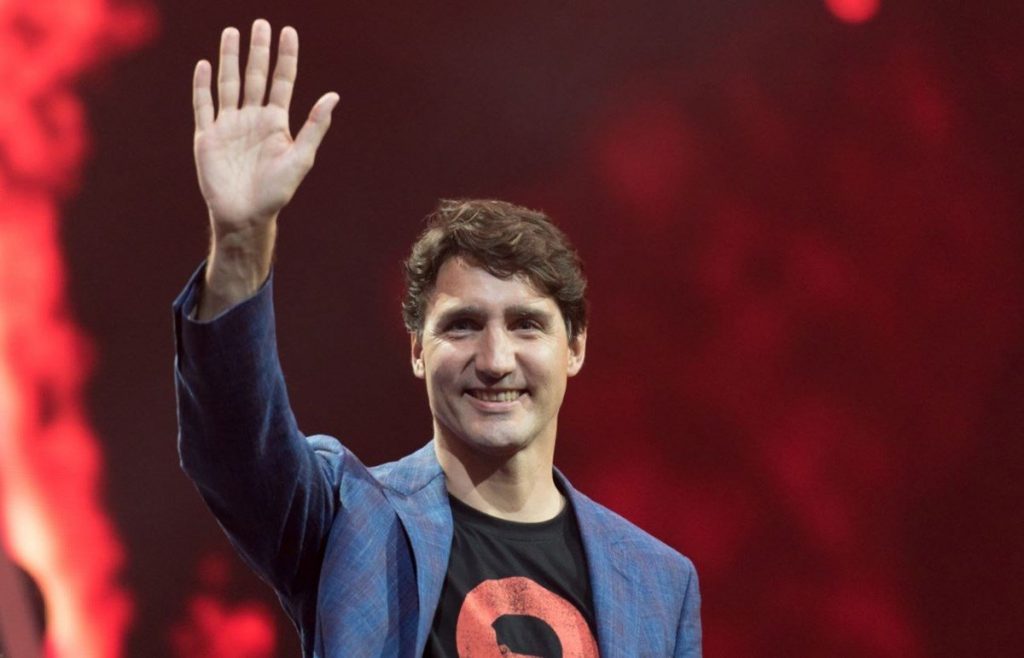Canada will be outlawing Holocaust denial in an attempt to crack down on white-supremacism and antisemitism in the country, documents show. The change to the Criminal Code will come as part of a bill enacting the budget (yes, seriously).
“The federal government is set to make it a criminal offence to make a statement denying the Holocaust took place or condoning or downplaying the killing of Jews by the Nazi regime, except in a private conversation,” The Globe and Mail reports. “Canada will join a string of European countries, including Germany, Greece, France, Belgium and the Czech Republic, which have already prohibited Holocaust denial.”
“There is no place for antisemitism and Holocaust denial in Canada,” said Public Safety Minister Marco Mendicino regarding the move. “The Holocaust was one of the darkest chapters in human history. We must preserve its memory, combat contemporary antisemitism and be unequivocal when we say: never again.”
Aside from the clear free speech problems, the broad wording of the bill is particular cause for concern. For instance, what exactly constitutes “denying, condoning, or downplaying” the Holocaust? These are relatively ambiguous terms that are open to interpretation, and it’s by no means obvious where the legal line will be drawn.
A good illustration of this issue can be found in the Globe piece itself. Consider the following quote from Irwin Cotler, the prime minister’s special envoy on preserving Holocaust remembrance and combatting antisemitism.
“Holocaust denial and distortion constitute a cruel assault on memory, truth, and justice – an antisemitic libel to cover up the worst crime in history – and thereby a cruel and mocking rebuke to Holocaust survivors and their legacy.”
According to Cotler, presumably one of the architects of this law, the Holocaust was “the worst crime in history.” Now here’s a question. If someone said the Holocaust was not the worst crime in history, would that constitute “downplaying” the Holocaust? Would that statement be punishable under this law?
Inquiring minds would like to know.
Now, it’s tempting to think that a law like this is more about making a statement than actually handing out fines and throwing people in jail. But these are not empty threats. Just a couple weeks ago, a Berlin court sentenced a 93-year-old German woman to 12 months in prison for denying the Holocaust. If the Canadian government is copying this German law, there’s no reason to believe they won’t also copy German-style enforcement.
The possibility of fines or even jail time puts this law into perspective, and it’s a sobering reminder about what it really means to outlaw something. The cold truth is that all laws are ultimately enforced with threats of violence. To ban or prohibit an action is to threaten violence against those who do it. Of course, a fine in itself is not a violent act. But if you ignore the fine and all subsequent demands (that is, if you peacefully mind your own business), sooner or later someone will show up to your house with a gun and threaten you with physical force.
Given this reality, the question we need to ask about this law is not whether the Holocaust was good or bad, real or fake, egregious or minor. The simple question is, would you use a gun to stop someone from saying things about the Holocaust that you disagree with? Is this something that warrants the threat and use of physical force?
Now, if you’re tempted to say yes, you’re not alone. After all, allowing people to speak freely means some people will probably say wrong or hateful things. But we need to be careful here. If we don’t allow hateful people to say hateful things, if we justify using the gun, then we have abandoned the principle of liberty and opened the door to tyranny.
“The trouble with fighting for human freedom,” said H.L. Mencken, “is that one spends most of one’s time defending scoundrels. For it is against scoundrels that oppressive laws are first aimed, and oppression must be stopped at the beginning if it is to be stopped at all.”
As tempting as it is to make an exception to free speech in the case of Holocaust denial, this sets a dangerous precedent. If we do not speak up now when they are going after Holocaust deniers, what’s to stop them from going after “climate deniers,” “election deniers,” or “war propaganda deniers”? Once this kind of law gets passed, it becomes very easy to go further, outlawing any speech deemed offensive, false, or otherwise inappropriate.
The point is, the moment we make exceptions is the moment we lose the principle. “If we don’t believe in free expression for people we despise,” said Noam Chomsky, “we don’t believe in it at all.”
This article was adapted from an issue of the FEE Daily email newsletter. Click here to sign up and get free-market news and analysis like this in your inbox every weekday.
Patrick Carroll
Patrick Carroll has a degree in Chemical Engineering from the University of Waterloo and is an Editorial Fellow at the Foundation for Economic Education.
This article was originally published on FEE.org. Read the original article.


